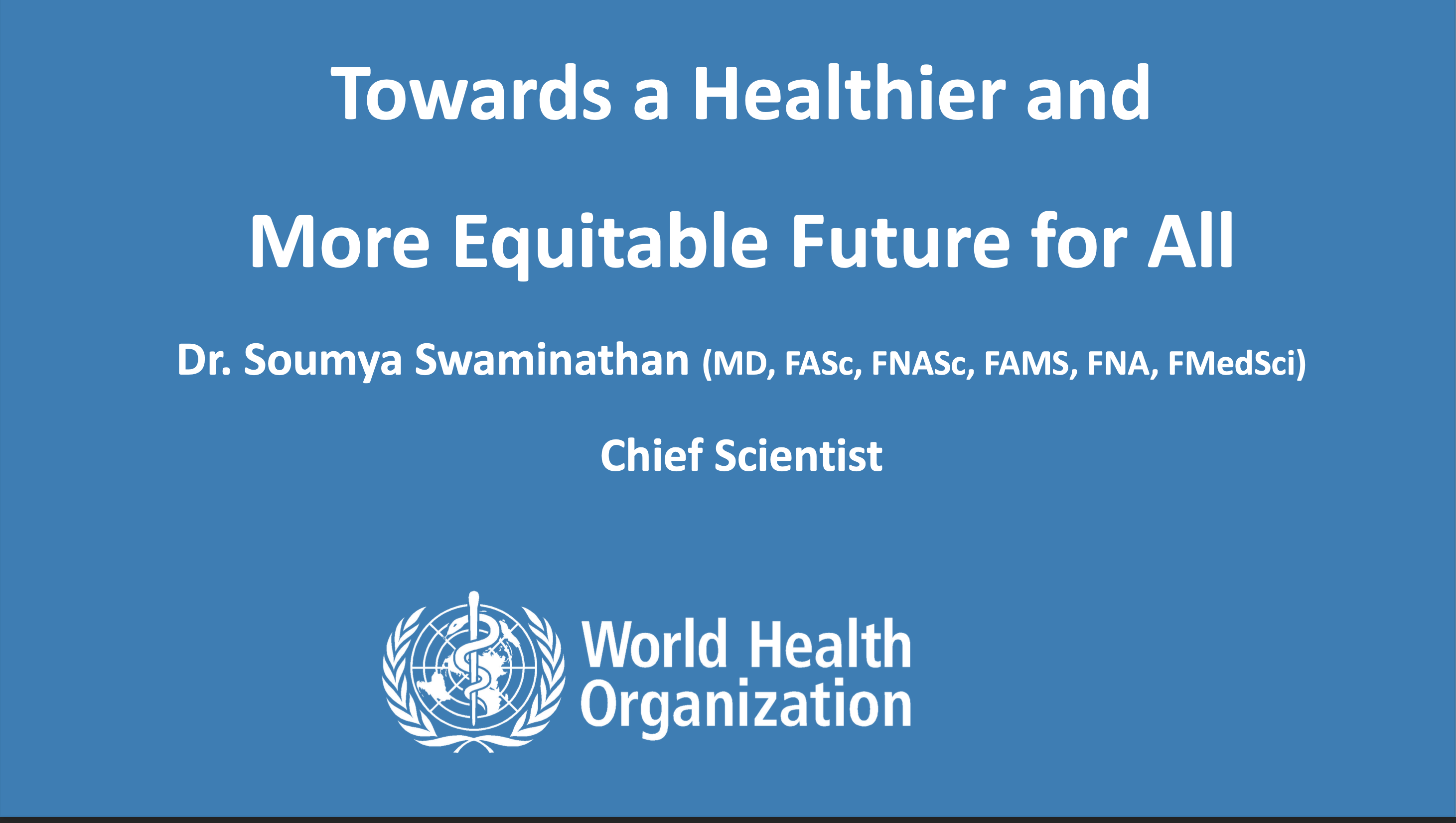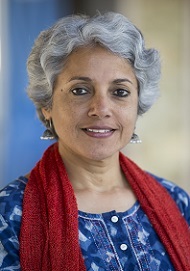Towards a Healthier and Equitable Future For All


Dr. Soumya Swaminathan (MD, FASc, FNASC, FAMS, FNA, FMedSci)
Chief Scientist, World Health Organization (WHO)
The COVID-19 pandemic has highlighted the role of science, innovation, research and digital technologies in solving some important public health problems we face today. The pandemic also exposed and exacerbated inequities within and between countries. The pandemic has demonstrated the importance of tackling the multi-dimensional risks faced by the poorest, most vulnerable people and those left behind. WHO has been instrumental in the control of the pandemic by coordinating global efforts from implementation and operational support to developing norms and standards, evidence and research for health. We must learn lessons and work to tackle the root causes of disease and ill health by reorienting health systems towards primary health care and universal health coverage. For healthy recovery from the pandemic, there is an urgent need for stronger health governance with increased attention to determinants of health, including environmental and commercial determinants, and action to mitigate the growing health impacts of the climate crisis.
Lecture Recording See presentation slides
Dr. Soumya Swaminathan was appointed WHO’s first Chief Scientist in March 2019. A pediatrician from India and a globally recognized researcher on tuberculosis and HIV, she brings with her 30 years of experience in clinical care and research and has worked throughout her career to translate research into impactful programmes. Dr Swaminathan was Secretary to the Government of India for Health Research and Director General of the Indian Council of Medical Research from 2015 to 2017. In that position, she focused on bringing science and evidence into health policy making, building research capacity in Indian medical schools and forging south-south partnerships in health sciences. From 2009 to 2011, she also served as Coordinator of the UNICEF/UNDP/World Bank/WHO Special Programme for Research and Training in Tropical Diseases in Geneva.
She received her academic training in India, the United Kingdom, and the United States, and has published more than 450 peer-reviewed publications and book chapters. She is an elected Foreign Fellow of the US National Academy of Medicine and a Fellow of all three science academies in India. The Science division’s role is to ensure that WHO stays ahead of the curve and leverages advances in science and technology for public health and clinical care, as well as ensuring that the norms, standards and guidelines produced by WHO are scientifically excellent, relevant and timely. Her vision is to ensure that WHO is at the cutting edge of science and is able to translate new knowledge into meaningful impact on population health worldwide.